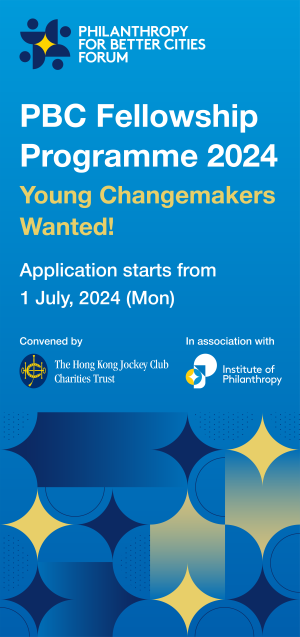The etymology of the word ‘frontier’ refers to the spaces on the border, the borderlands, those places that are between one world and another. In 2024, what does it mean to be on the frontier, the borderlands, of philanthropy? A field foundationally grounded on the highly structured performativity of excess, hoarded financial capital.
Indy Johar, Kirstin Dunlop and Aarathi Krishnan opened the Next Frontiers conference with a sobering and honest assessment of the moment we are in. It was an important level-setting moment for the day. They spoke of semi-radical ideas in a traditionally staid space. Ideas like phase shifts and root cause financing, the notion of financing hope and counterfactual finance. Kirstin put voice to what many are calling the ‘ontological shift’, the wholesale re-worlding that is required as we pass through the borderlands from one culture, that is quite literally collapsing around us, and into the next, as yet unknown, culture of the futures. These leaders in the field spoke of rethinking risk and of radical uncertainty, setting a tone of simultaneous stuckness and movement. All of it felt relevant and critical, none of it feels sufficient (yet) to the task we face.
This ‘ontological shift’ requires of each of us a radical undoing. A surrender to the ancient wisdoms of not-knowing. The work of “Post Capitalist Philanthropy” by Lynn Murphy and Alnoor Ladha proposes that these Onto-Shifts run on a continuum. And that they require us to imagine “Identity as contextually co-created across a spectrum rather than identity as fully-formed, pre-existing, permanent and foundational.” (Ladha & Murphy, 2022: 116) How does Philanthropy respond to these shifts when it is a field defined by the public proclamation of doing-good and systematically favors metrics that are legible to linear understandings of change?
Riding waves of uncertainty is not something philanthropy has historically done well. What Bayo Akomolafe calls Philanthrocapitalism thrives on conservative calculations of risk, hedging bets, organized grant timelines, tight reporting, rates of impact, visible returns on investment. We are handicapped by our increasingly desperate grasping at certainty and knowingness in a world where everything is changing and everything must change. How do you calculate risk in a world where doing nothing is the riskiest act of all?
Whether we are speaking of decolonizing wealth or humanizing wealth holders, the move is the same. We must bring the ivory towers of wealth back down and into to the deep earthen mines from which they came. A world torn apart by the wealth-making practices of violent extraction can only be healed through cultures that understand the peacemaking of interbeing and deep relationality. What is the relationality with money and wealth that is needed for the collective liberation we claim to seek?
In one of the last conversations of the day, philosopher and sage Bayo Akomolafe spoke of capitalism as a “sensorium that is practicing bodies into life… an assemblage that is organizing bodies to produce well.”
In thinking about the idea of reimagining wealth, he shared 3 provocations about our relations with money:
- Money is experiment – what would it look like to resource failure?
- We are not in control of money – it is a superbehavior beyond our control, it is more than human, money controls us.
- Money traces a sense of neurotypicality. It asks us to be proper, surveillable, to perform in normalized ways that replicate the systems we seek to transform.
With these provocations in mind, he asks us to think about Carnivalesque modes of research that might adequately meet the moment, constituting a ‘field of experimentation’ or ‘fugitive study.’ Ways of being in relation to money and wealth that offer some ways through the cracks for those of us engaged in the distribution of money for collective thriving, a collection of practices that we have come to call the ‘field of philanthropy’.
As we imagine ourselves one year from now, in London, attending the JRF Foundation’s Next Frontiers 2025 conference, will we have crossed the borders into new lands? Or will we still be lingering on the edges, looking over the fences and at impassable walls, wondering about our next moves, looking for cracks to squeeze through?
These frontiers are working on us and in us all the time. What needs to change so that we can finally pass through the borders and into something decidedly new? Something truly rooted in the collective liberation of capital-L Life?
Aubrey Yee is a Futurist, Facilitator and Coach at Our Beloved Futures





Comments (0)
Green Technologies: There was significant emphasis on sustainable technologies aimed at combating climate change. Innovations in renewable energy, carbon capture, and sustainable agriculture were highlighted as critical areas for investment and development. Corporate Responsibility: Panels addressed the role of corporations in driving sustainability initiatives, stressing the importance of integrating environmental considerations into business strategies.